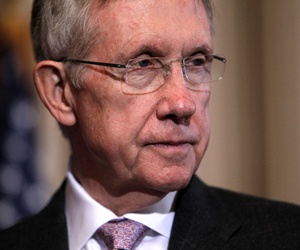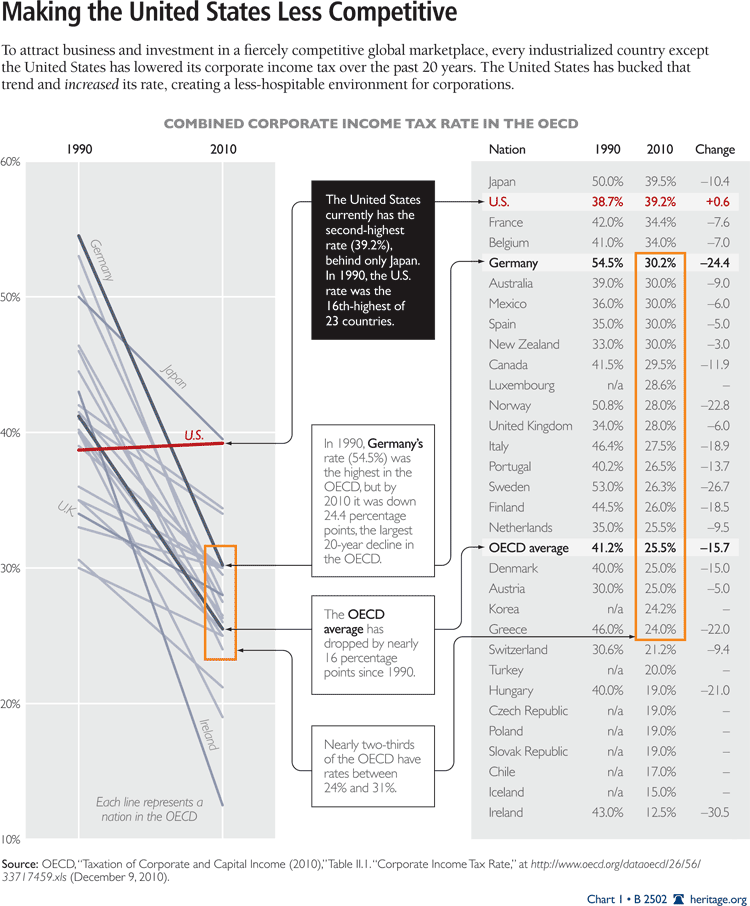Our Future: If We Don’t Stop Spending and Tighten Our Belts… Everywhere!!
Video: The Day the Dollar Died
GOP Slams 6,000 Earmarks in Trillion-Dollar Omnibus Spending Bill
By David A. Patten - Wednesday, 15 Dec 2010 02:14 PM
Republicans are blasting a last-ditch Democratic effort to pass a massive spending bill laden with about 6,000 earmarks as a “smack in the face to taxpayers.”
Senate Minority Leader Mitch McConnell fired away at the bill from the floor of the Senate, saying it “repeats all the mistakes voters demanded that we put an end to on Election Day.”
“Americans told Democrats last month to stop what they’ve been doing: bigger government, 2,000-page bills jammed through on Christmas Eve, wasteful spending.”
Most Democrats are rallying around the bill, however, seeing it as perhaps their last opportunity to get pet spending projects passed before the 112th Congress takes office. In both the House and Senate, incoming Republicans have agreed to ban earmark requests.
Senate Majority Leader Harry Reid of Nevada praised the 1,924-page, $1.1 trillion spending bill Tuesday as “a very good piece of legislation.” Reid hopes to bring the bill up for a vote this week. House Democrats would vote on it on Saturday.
Steve Ellis, vice president of Taxpayers for Common Sense, tells Newsmax that virtually no member of Congress has time to read the massive omnibus legislation. Even worse, he says, is that the joint explanatory statement that explains the specifics of the spending request has not yet been published, he says. That document will be more than 1,000 pages as well.
“That’s how you actually find out how the money have been sliced and diced across the various programs and accounts,” Ellis says. “It’s clearly not going to be made available to the public much before the Senate votes on it, and we’re all being asked to buy a $1.1 trillion pig in a poke.
“They had all year to get this thing done, and done in a manner that was at least partially intelligible to the public and to the budget watchers,” Ellis tells Newsmax. “Instead, we have this enormous sausage that they’re trying to stuff through, really virtually sight unseen.”
Republicans say they will push for a continuing resolution in place of the huge omnibus bill. But the GOP push to stop the bill may fall short because of defections from within their own caucus.
Republican senators such as Kit Bond of Missouri and Bob Bennett of Utah don’t have to worry about running for re-election. Both sit on the Senate Appropriations Committee that crafted the omnibus.
“This is exactly the kind of secretive, pork-laden, massive spending bill that’s driven approval of Congress to an all-time low, and induced a voter rebellion last month,” Brian Riedl, lead budget analyst for the Heritage Foundation, tells Newsmax.
 Legislative experts say the omnibus bill reflects the inability of Congress to fund government operations in an efficient manner.
Legislative experts say the omnibus bill reflects the inability of Congress to fund government operations in an efficient manner.
Because the 111th Congress was unable to pass a spending bill in a timely way, Democratic strategists rolled 12 separate bills into one omnibus measure.
Keeping everything in one bill makes it more difficult to excise specific provisions that legislators find objectionable. But it also results in a mammoth piece of legislation that may go unread until months after the bill becomes law.
Unsatisfied with the simple continuing resolution the House passed that would keep the government running until the next Congress takes over in January, the Senate is proposing the earmark-laden omnibus as one last spending hurrah before legislators leave town. Grass-roots conservatives are particularly angry that the bill includes $1 billion to fund the healthcare bill that may be unconstitutional, based on a judge’s ruling in Virginia this week.
Because the authorization for government spending is expiring, Republicans could be accused of shutting down the government if they are able to block the omnibus bill. But GOP senators say they would be happy to vote for a continuing authorization such as the one already passed by the House.
Among the 6,000 earmarks the media has uncovered so far in the massive legislation the Senate is trying to push through just weeks after Democrats sustained their work landslide of the post-World War II era:
- Literal pork: Almost $350,000 is earmarked to study the management of swine waste in North Carolina.
- $235,000 for the management of invasive weeds in Nevada.
- $300,000 for the Polynesian Voyaging Society in Hawaii. Founded in 1973, the society sails a “voyaging” boat throughout the Pacific, studying how ancient Polynesian people settled far-flung lands.
- Funds are devoted to a variety of agricultural needs, including research of maple syrup in Vermont, control of potato pests in Wisconsin, the development of virus-resistant grapes in Washington state, and peanut cultivation research in Alabama.
- $80 million for states and Indian tribes to pay for preservation of Pacific salmon.
- $13 million for clean-water initiatives in rural villages in Alaska.
- $450,000 for the World Food Prize.
- $500,000 for the Edward M. Kennedy Institute.
- $200,000 to install solar panels at a food bank in Arizona.
If the bill passes Congress, it would be up to the president to decide whether to accept it.
Incoming House Speaker John Boehner, a longtime foe of the earmark practice, signed onto a letter last week asking Obama to veto the measure. Boehner issued a statement on Tuesday blasting the bill as a “smack in the face to taxpayers.”
There are two provisions in the bill that Obama may oppose. One would effectively block civilian trials of Guantanamo Bay prisoners in the United States, while another would allocate $450 million for development of a second engine for the F-35 Joint Strike Fighter. Defense Secretary Robert Gates has said he will urge the president to veto any bill that contains money for a second engine, which the Pentagon says it does not want.
In what some saw as a statement suggesting the president would be reluctant to veto the bill, White House press secretary Robert Gibbs said Tuesday:
“Obviously one of the things that has to be done before Congress leaves is how we’re going to pay for the operation of government going forward.”
GOP Sen. Jim DeMint of South Carolina is threatening to mount a filibuster, and may insist that all 1,924 pages of the bill be read into the record before any vote is taken.

U.S. to have Highest Corporate Tax Rate in the World
Posted December 15th, 2010 at 5:00pm in Entitlements 6 Print This Post
Print This Post
Most of the time being number one is good. But when it comes to having the highest tax rate in the world, it is much better for a country to be bringing up the rear.
Currently Japan holds the inauspicious distinction of having the highest corporate income tax rate in the world (39.5 percent). The United States is a close second, only a few tenths-of-percentage points behind.
Japan will soon fall from the top spot because it has finally recognized what the rest of the industrialized world realized over a decade ago: A low corporate income tax rate is vital for economic growth in the global marketplace. As such, Japan just announced it will reduce its corporate income tax rate by 5 percentage points down to around 35 percent. This remains far above the 25 percent average rate of other industrialized countries, but for them it is a start.
Japan’s reduction will leave the U.S. in the uncomfortable position of having the highest corporate income tax rate in the industrialized world. Hopefully Congress will finally see fit to lower the rate now that we will hold that disreputable title.
The U.S. ended up at the top because it stood still while the rest of the world was cutting its rates. As the chart below shows, in 1990 the U.S. corporate tax rate was middle of the pack. In fact, it was lower than the global average. The years since have seen every other industrialized country aggressively lower its rate.
The top marginal corporate income tax rate is an important factor influencing economic growth and job creation, because it determines how much the tax will reduce the return the business earns from new investment. As a result, it is a large determinant when businesses decide where to locate their next venture—and where they will hire new employees.
The high rate in the U.S. is driving businesses and jobs to other countries. Those jobs will continue to flow to other countries if the U.S. insists on levying its self-defeating corporate income tax rate. It is long past time forCongress to lower the rate so it is equal or below the 25 percent average of our competitors. If it does not, businesses and jobs will continue their exodus to more friendly locales.
The Heritage Foundation - The Foundry























No comments:
Post a Comment